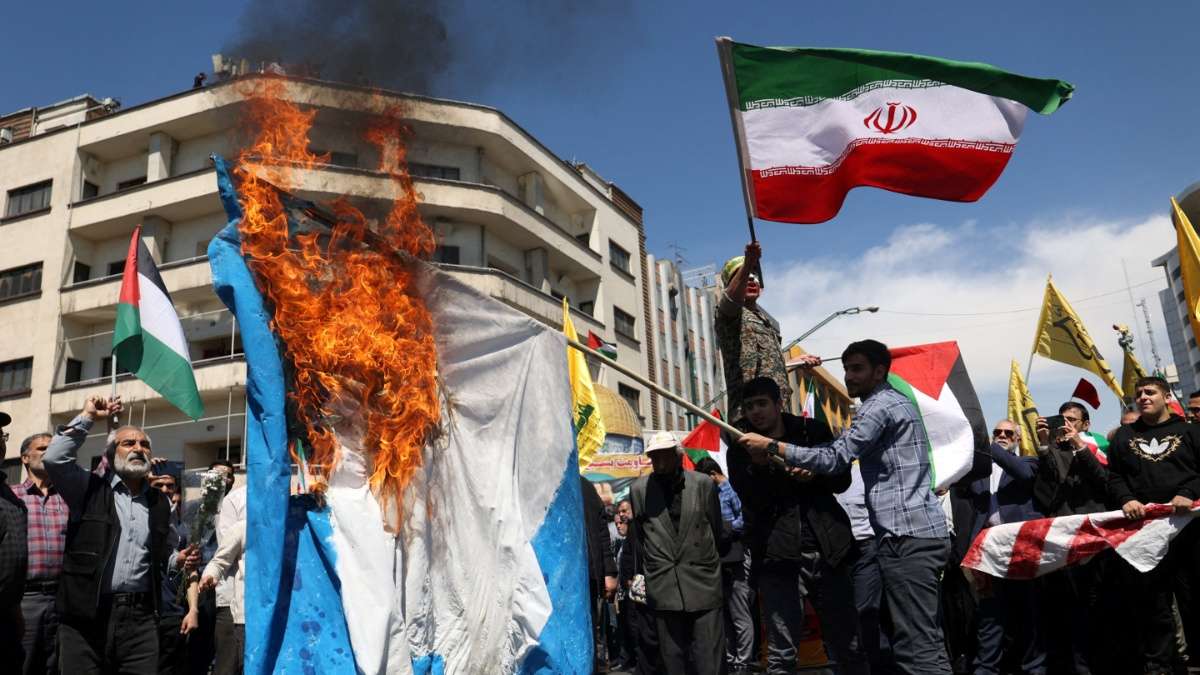
[ad_1]

In response to escalating tensions in the Middle East triggered by an Iranian threat to strike Israel, Russia, Germany, and Britain have called for restraint among regional countries. The situation remains on edge following an airstrike on Iran’s embassy compound in Damascus on April 1, which resulted in the death of a top Iranian general and six other military officers.
Suspension of flights and security preparations
The German airline Lufthansa, a key carrier flying to Tehran, extended the suspension of its flights to the Iranian capital amidst the heightened tensions. Additionally, Russia issued a travel warning for the Middle East region. Meanwhile, Israeli Prime Minister Benjamin Netanyahu emphasized that Israel is prepared to meet all its security needs, both defensively and offensively.
Iran’s response and international calls for restraint
Iran has signaled to Washington its intention to respond to Israel’s attack in a manner aimed at avoiding major escalation. Iranian sources indicated that Tehran would not act hastily. Israeli Defense Minister Yoav Gallant conveyed to U.S. Secretary of Defense Lloyd Austin that Israel would directly respond to any Iranian attack.
International diplomatic efforts
German Foreign Minister Annalena Baerbock urged Iran to exercise “maximum restraint” to prevent further escalation. Similarly, British Foreign Minister David Cameron stressed the importance of avoiding miscalculation to prevent further violence. U.S. Secretary of State Antony Blinken engaged with counterparts from Turkey, China, and Saudi Arabia to emphasise the importance of de-escalation.
Global airlines respond
Several airlines, including Lufthansa and Austrian Airlines, have adjusted their flight operations in response to the situation. While Lufthansa announced a likely delay in resuming flights to Tehran, Austrian Airlines adjusted flight timings to avoid overnight layovers for crew members. Airlines such as Emirates, Qatar Airways, Turkish Airlines, Aeroflot, and Air Arabia, which operate flights to Tehran, have not yet provided official comments on the situation.
Oil prices and airspace closures
Iran’s status as the third-largest oil producer in OPEC has led to concerns about potential disruptions in oil supply, keeping oil prices near six-month highs. Late on Wednesday, an Iranian news agency briefly reported the closure of Tehran’s airspace for military drills, sparking further uncertainty before the report was retracted.
As tensions persist in the region, diplomatic efforts continue to avert further escalation and maintain stability in the Middle East.
Also read | Vietnam: Real estate tycoon Truong My Lan sentenced to death in massive $12 billion fraud case
[ad_2]
Source link